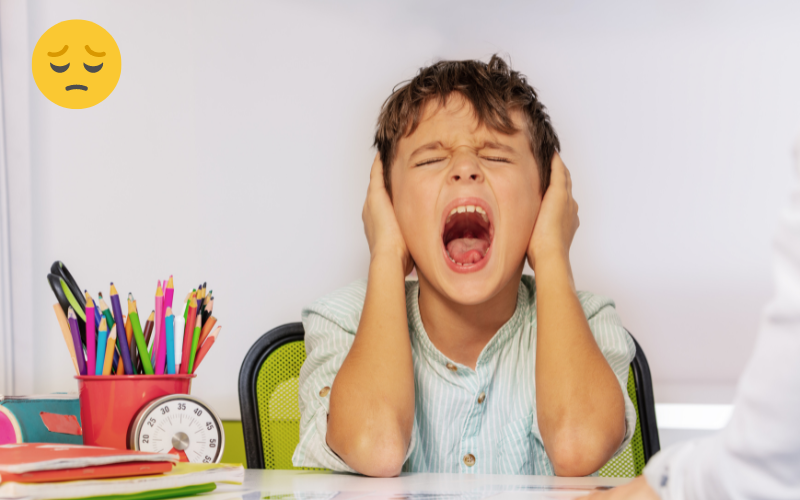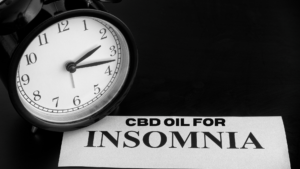The conversation around autism has been largely shrouded in silence for too long. But with the emergence of CBD, there is a new ray of hope for those living with autism and their families. CBD has shown promising results in the treatment of some of the symptoms associated with autism, giving many individuals and families a renewed sense of hope. From improved sleep quality to increased communication, CBD is providing much needed relief and support to those impacted by autism. Let’s break the silence and explore how CBD is changing the conversation around autism.
Understanding Autism and Its Symptoms
Autism is a complex neurodevelopmental disorder that affects how individuals interact and communicate with others. It is typically diagnosed in early childhood, and its symptoms can vary greatly from person to person. Understanding autism is essential for parents who have children with this condition, as it allows them to better support their child’s unique needs.
For kids with autism, social interactions can be challenging. They may struggle with maintaining eye contact, understanding non-verbal cues, and developing friendships. Communication difficulties are also common, with some children being nonverbal or having difficulty expressing their thoughts and feelings. Sensory sensitivities, such as sensitivity to loud noises or textures, can also be present.
As parents, it is crucial to be aware of these symptoms and understand how they may impact your child’s daily life. By recognizing and addressing their challenges, you can help create a supportive and understanding environment that promotes their growth and development.
It’s important to remember that every child with autism is unique, and their experiences may differ. Some children may excel in specific areas, such as music or mathematics, while others may have significant challenges in multiple domains.

Traditional Treatments for Autism and Their Limitations
While there is no cure for autism, there are various traditional treatments available to help manage its symptoms and improve the quality of life for individuals with this condition. These treatments typically involve a multidisciplinary approach, including behavioral therapy, speech therapy, occupational therapy, and medication.
Behavioral therapy, such as Applied Behavior Analysis (ABA), is a widely recognized and effective treatment for autism. It focuses on teaching skills and reducing problem behaviors through positive reinforcement and structured learning. ABA therapy helps kids with autism develop social skills, improve communication, and manage challenging behaviors.
Speech therapy plays a crucial role in helping children with autism improve their communication skills. It focuses on improving language and speech production, as well as addressing difficulties with nonverbal communication and social interactions.
Occupational therapy aims to help individuals with autism develop the skills they need for daily activities and independence. It focuses on improving sensory processing, motor skills, and self-care abilities. This therapy can help kids with autism overcome sensory sensitivities and develop better self-regulation skills.
Medication may also be prescribed to manage certain symptoms associated with autism, such as hyperactivity, aggression, anxiety, or sleep disturbances. However, it’s important to note that medication is not a cure for autism and should always be used in conjunction with other therapies and interventions.
While these traditional treatments have shown some benefits in managing the symptoms of autism, they have limitations. Each child with autism is unique, and what works for one may not work for another. Additionally, these treatments may not address all the challenges faced by individuals with autism, such as sensory sensitivities or sleep disturbances.

CBD and Its Potential Benefits for Autism
CBD has shown great potential in providing numerous benefits for individuals with autism. While more research is needed, early studies suggest that CBD may help alleviate some of the symptoms associated with autism, providing a new ray of hope for families.
One of the potential benefits of CBD for autism is its ability to reduce anxiety and improve sleep quality. Many individuals with autism struggle with anxiety, which can make it difficult for them to relax and fall asleep. CBD has been found to have calming properties, which may help individuals with autism feel more at ease and improve their sleep patterns.
Additionally, CBD may help improve communication skills in individuals with autism. Some studies have shown that CBD may enhance social interactions and reduce the frequency and intensity of challenging behaviors. By reducing anxiety and promoting relaxation, CBD may create an environment that is more conducive to effective communication.
Another potential benefit of CBD for autism is its ability to reduce sensory sensitivities. Many individuals with autism experience heightened sensitivity to stimuli such as noise or textures. CBD may help modulate sensory responses and decrease sensory overload, making it easier for individuals with autism to navigate their environment.
It is important to note that every individual with autism is unique, and the effects of CBD may vary from person to person. It is essential to consult with a healthcare professional experienced in CBD use to determine the appropriate dosage and monitor its effects.

Research on the Use of CBD for Autism
Research on the Use of CBD for Autism
As the conversation around CBD and autism continues to grow, researchers are diligently studying the potential benefits of CBD for individuals with autism. While more research is needed to fully understand its effectiveness, the early findings are promising.
Several studies have explored the use of CBD for autism and have yielded positive results. For example, a study published in the Journal of Autism and Developmental Disorders found that CBD treatment reduced the frequency and severity of challenging behaviors in children with autism. Another study conducted by the University of California, Irvine, discovered that CBD improved social interactions and communication skills in individuals with autism.
Furthermore, research has shown that CBD may help alleviate anxiety and improve sleep quality in individuals with autism. A study published in the journal Neurology found that CBD reduced anxiety symptoms in children with autism spectrum disorder. Additionally, a study published in Frontiers in Psychiatry showed that CBD improved sleep patterns in children with autism.
While these studies provide encouraging insights, it is important to note that more research is necessary to establish the optimal dosage, long-term effects, and potential side effects of CBD for individuals with autism. Parents should consult with healthcare professionals experienced in CBD use to determine the appropriate course of action for their child.
Parental Perspectives on CBD as a Treatment Option for Autism
Parental Perspectives on CBD as a Treatment Option for Autism
As the conversation around CBD and its potential benefits for autism continues to grow, it is essential to explore the perspectives of parents who have considered or already incorporated CBD into their child’s treatment plan. Many parents are eager to find new avenues of support for their children with autism and are hopeful about the potential of CBD.
Some parents have reported positive experiences with CBD, noting improvements in their child’s overall well-being. They have seen a reduction in anxiety, improved sleep quality, and enhanced communication skills. These changes have brought immense relief to both the child and the family, as they create a more harmonious and manageable daily life.
However, it is important to acknowledge that every child with autism is unique, and what works for one may not work for another. As a result, not all parents have experienced the same level of success with CBD. Some may find that CBD has minimal impact on their child’s symptoms or may experience side effects that outweigh the potential benefits.
Ultimately, the decision to incorporate CBD into a child’s treatment plan is deeply personal and should be made in consultation with healthcare professionals experienced in CBD use. These professionals can provide guidance on appropriate dosages, potential interactions with other medications, and monitor any changes in symptoms or behaviors.
Commonly Asked Questions About CBD and Autism
As the conversation around CBD and its potential benefits for autism continues to grow, it’s natural for parents to have questions. Here are some commonly asked questions about CBD and autism, answered to provide you with the information you need:
1. Is CBD safe for children with autism?
CBD is generally considered safe, but it’s crucial to consult with a healthcare professional experienced in CBD use before giving it to your child. They can provide guidance on dosage, potential interactions with other medications, and monitor any changes in symptoms or behaviors.
2. Can CBD cure autism?
CBD is not a cure for autism, but it has shown promise in alleviating some of the symptoms associated with the condition. It may help reduce anxiety, improve sleep quality, and enhance communication skills, among other potential benefits.
3. How do I know if CBD is right for my child with autism?
The decision to incorporate CBD into your child’s treatment plan should be made in consultation with healthcare professionals. They can help determine if CBD is appropriate for your child and guide you on the potential benefits and risks.
4. What is the best way to administer CBD to a child with autism?
CBD can be administered in various forms, including oils, capsules, or edibles. The best method will depend on your child’s preferences and needs. Consult with a healthcare professional to determine the most suitable option for your child.
5. Will CBD interact with other medications my child is taking?
CBD may interact with certain medications, so it’s essential to inform your healthcare professional about all the medications your child is taking. They can assess any potential interactions and make necessary adjustments to the treatment plan.
CBD Dosage and Safety for Children with Autism

Ensuring the correct CBD dosage and safety for children with autism is crucial to their well-being and overall treatment plan. When it comes to CBD, it’s important to remember that every child is unique, and their needs may vary. It is always recommended to consult with healthcare professionals experienced in CBD use to determine the appropriate dosage for your child.
Starting with a low dosage and gradually increasing it is a common approach to find the optimal dose for your child. This allows you to monitor their response and make adjustments as needed. It’s important to keep in mind that CBD affects individuals differently, so finding the right dosage may require some trial and error.
Safety is a top priority when considering CBD for children with autism. It is essential to ensure that the CBD products you choose are of high quality, sourced from reputable manufacturers, and undergo third-party testing for purity and potency. Additionally, it’s important to be aware of any potential side effects and to closely monitor your child’s response to the CBD.
While CBD is generally considered safe, it’s important to be cautious if your child has any pre-existing medical conditions or is taking other medications. CBD can interact with certain medications, so it’s crucial to inform your healthcare professional about all the medications your child is taking to avoid any potential complications.
Legal Status of CBD and Autism Treatment
The legal status of CBD and its use in the treatment of autism can vary depending on the country or region you are in. In some places, CBD may be legally accessible and widely used as a treatment option for autism, while in others, it may still be restricted or even illegal.
It’s important for parents to familiarize themselves with the specific laws and regulations regarding CBD in their area to ensure they are compliant. Consulting with healthcare professionals who are knowledgeable about CBD use and the legal landscape can also provide valuable guidance and support.
As the conversation around CBD and autism continues to grow, there is increasing awareness and advocacy for the legalization and accessibility of CBD for individuals with autism. This is driven by the growing body of research that suggests the potential benefits of CBD in alleviating symptoms and improving quality of life.
Parents play a crucial role in advocating for the use of CBD as a treatment option for autism. By staying informed, sharing their experiences, and joining advocacy groups, they can help create positive change and expand access to this potentially beneficial treatment.

Conclusion
In conclusion, CBD is offering a new ray of hope for individuals with autism and their families. By understanding the symptoms of autism and the limitations of traditional treatments, we can begin to explore alternative options like CBD. Early research suggests that CBD may alleviate anxiety, improve sleep quality, enhance communication skills, and reduce sensory sensitivities in individuals with autism. While every child is unique and the effects of CBD may vary, many parents have reported positive experiences and improvements in their child’s well-being. It’s important to consult with healthcare professionals experienced in CBD use to determine the appropriate dosage and monitor its effects. Additionally, it’s crucial to familiarize yourself with the legal status of CBD in your area and advocate for expanded access to this potentially beneficial treatment. Together, we can break the silence around autism and continue to explore new avenues for support and improved quality of life for individuals with autism and their families.





